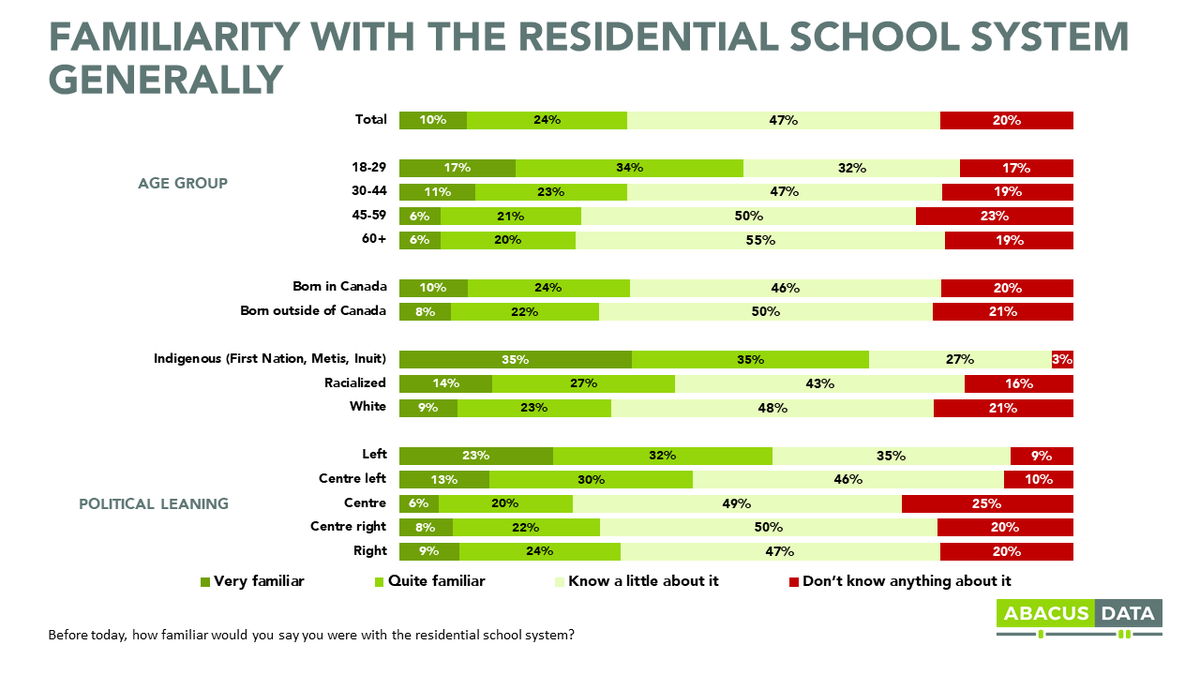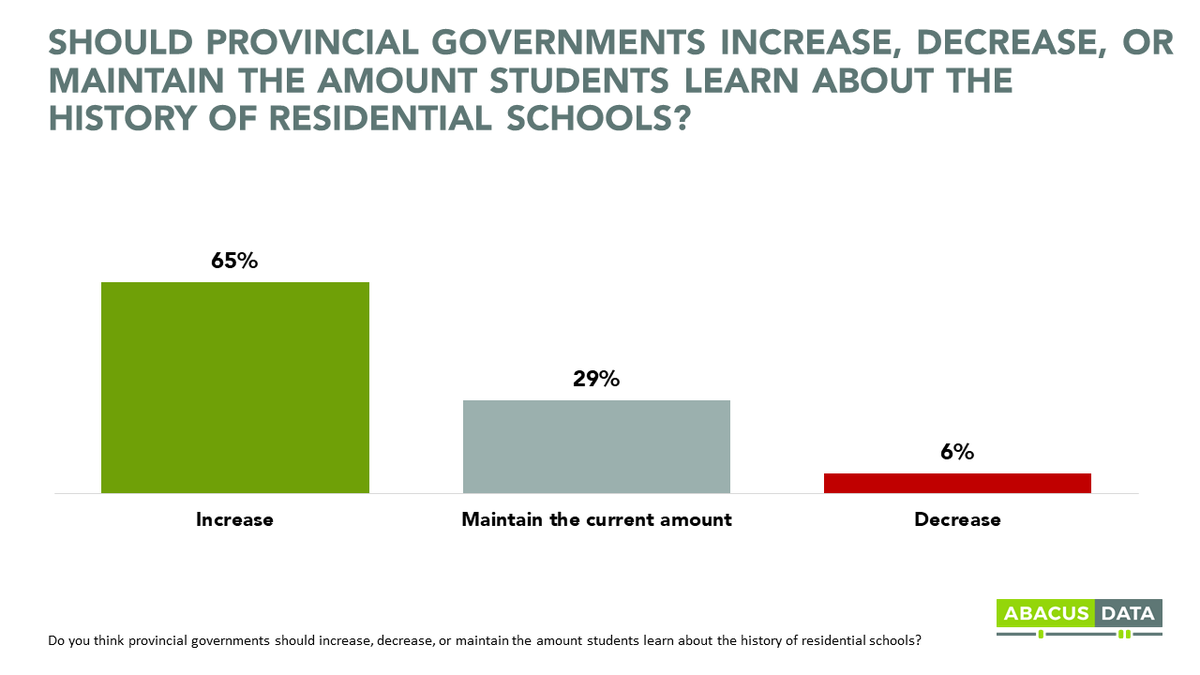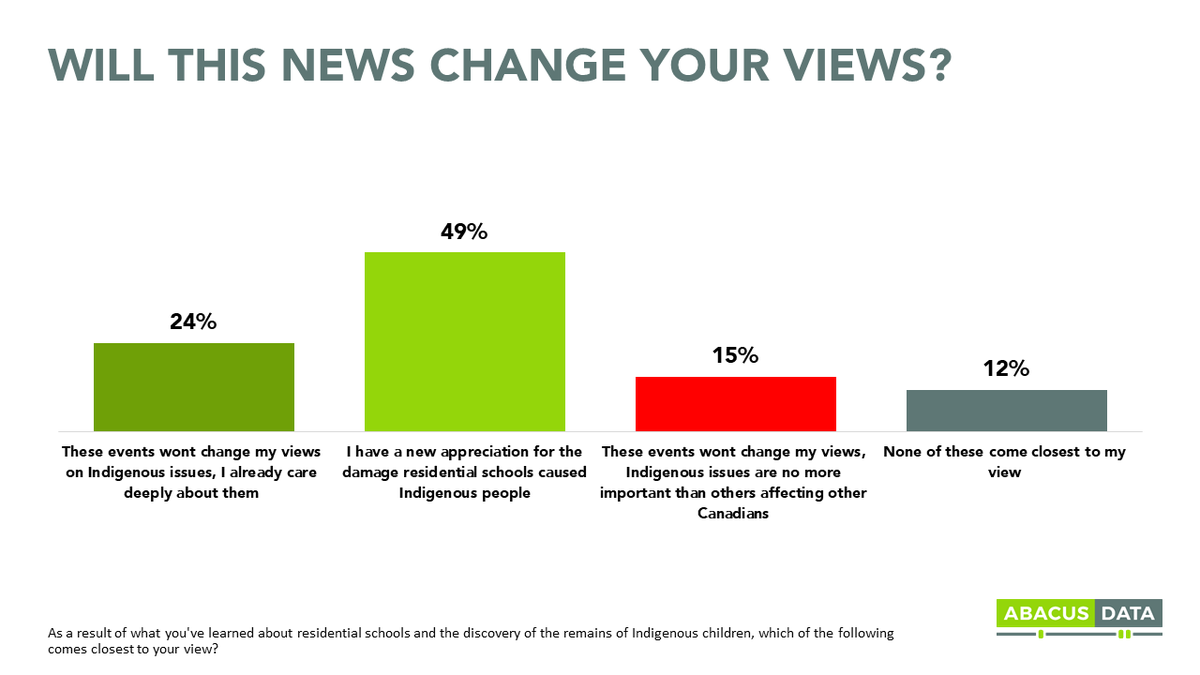Soon after the discovery of the remains of 215 children at the Kamloops residential school site, we conducted a national survey of 3,000 Canadians with @CRRF and @AFN_Updates.
The results indicate that this event might be a tipping point.
THREAD
crrf-fcrr.ca/en/news-a-even…
The results indicate that this event might be a tipping point.
THREAD
crrf-fcrr.ca/en/news-a-even…

Not only did almost all Canadians hear about it, but it had most people thinking about residential schools and how Indigenous people have been treated in Canada. 

How did Canadians react to the discovery? 24% weren't surprised, but for the rest of the country, it was worse than they thought. 1 in 3 said they were "shocked" by the news. 

Why shocked? Because most Canadians know little or nothing about the residential school system. Our understanding is quite limited, especially among older Canadians. 



So what should we do?
We find broad and deep support for several actions the Federal government could take.
We find broad and deep support for several actions the Federal government could take.

There's also broad understanding that our education systems aren't doing enough to teach students about the history of residential schools. 

As a result, 2 in 3 Canadians want their provincial government to increase the amount students learn about the history of residential schools. 

Finally, for many Canadians, the discovery in Kamloops has put a focus on Indigenous issues and has changed their views. 49% say they have a new appreciation for the damage residential schools caused Indigenous people. 

• • •
Missing some Tweet in this thread? You can try to
force a refresh











